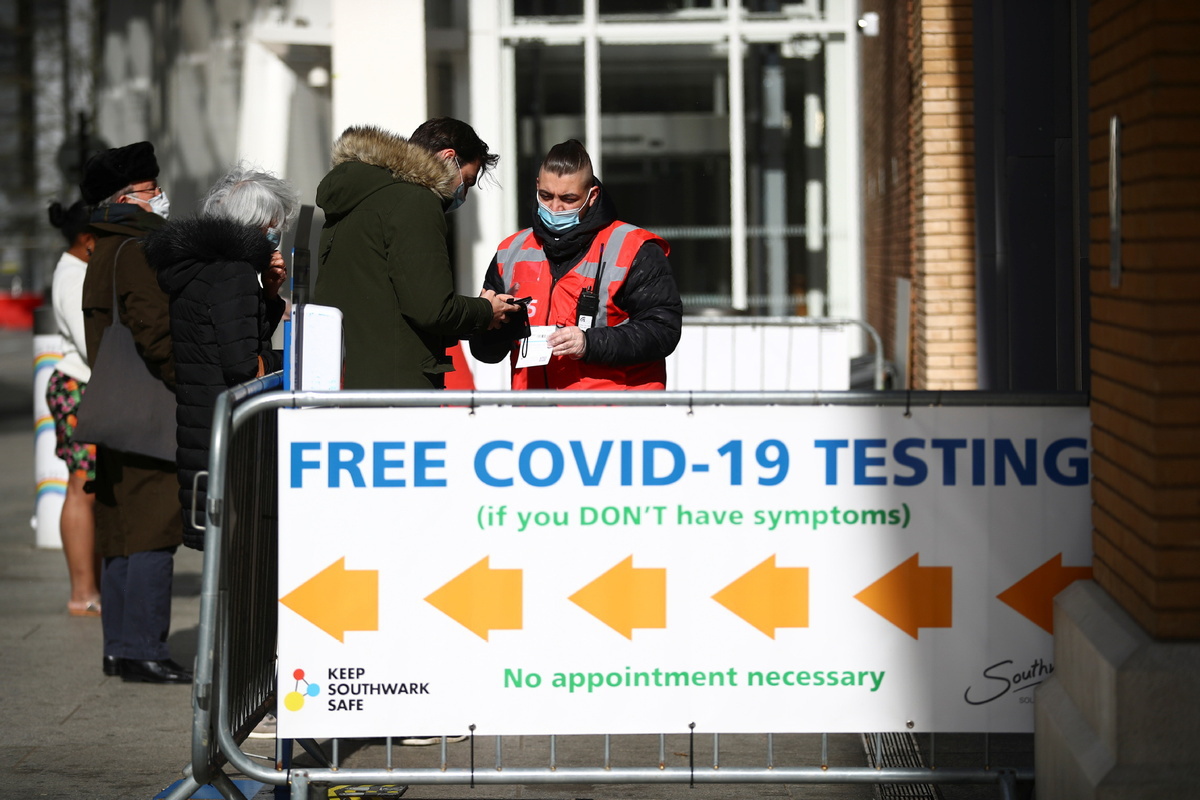British infections jump but vaccines limit impact
By Jonathan Powell in London | China Daily Global | Updated: 2021-06-28 02:46

The United Kingdom's COVID-19 vaccination program appears to have largely disrupted the link between infections and deaths, though the country has recorded a jump in new infections.
The latest figures from the Office for National Statistics, or ONS, estimated 153,200 people tested positive for COVID-19 in the week to June 19, which represents a near 30 percent rise in new infections on the previous week.
Government data indicates vaccines continue to limit the impact of the dominant Delta variant, though they do not offer 100 percent protection.
Public Health England said on Friday that, of the 1,320 people admitted to hospital with a Delta variant infection by June 21, more than 80 percent were unvaccinated or had only received one dose.
The government said a further 23 people had died within 28 days of testing positive for COVID-19. This brings overall fatalities in the UK caused by the virus to 128,089. In total, 4,717,811 people have had COVID-19 in the UK since the start of the outbreak.
The ONS said the number of people in the UK to have been given a first dose of a COVID-19 vaccine had reached 44,078,244, or 83.7 percent of UK adults. A total of 32,244,223 second doses have been administered, or 61.2 percent of UK adults.
The Financial Times reported that anxiety around the spread of the Delta variant had helped push the vaccination drive among young people.
Sports stadiums, shopping centers and theaters are being used as vaccination sites across the country to increase access and boost the number of people getting inoculated.
In the UK, there are four vaccines that have been approved for use by the regulator, the Medicines and Healthcare Products Regulatory Agency. These vaccines are: Pfizer/BioNTech, in use since Dec 8, Oxford/AstraZeneca, in use since Jan 4, and Moderna, in use since April 7. The Johnson & Johnson vaccine is expected to be rolled out later this year.
Speaking to the FT, Devi Sridhar, a professor at Edinburgh University and adviser to the Scottish government, said there had been a wave of infections in younger age groups.
He said: "It's a waiting game now to see how things look once we've double-jabbed more older people and given young adults their first dose."
While thousands of anti-lockdown and anti-vax demonstrators marched through central London on Saturday, analysis suggests the UK's anti-vaccine movement appears to be losing momentum, The Guardian reported.
New data from the London-based Vaccine Confidence Project shows levels of vaccine hesitancy are reducing among younger age groups. It also said that NHS England research indicates vaccine uptake has risen among black and Asian communities.
The latest government data shows just 6 percent of British adults reported vaccine hesitancy.
























